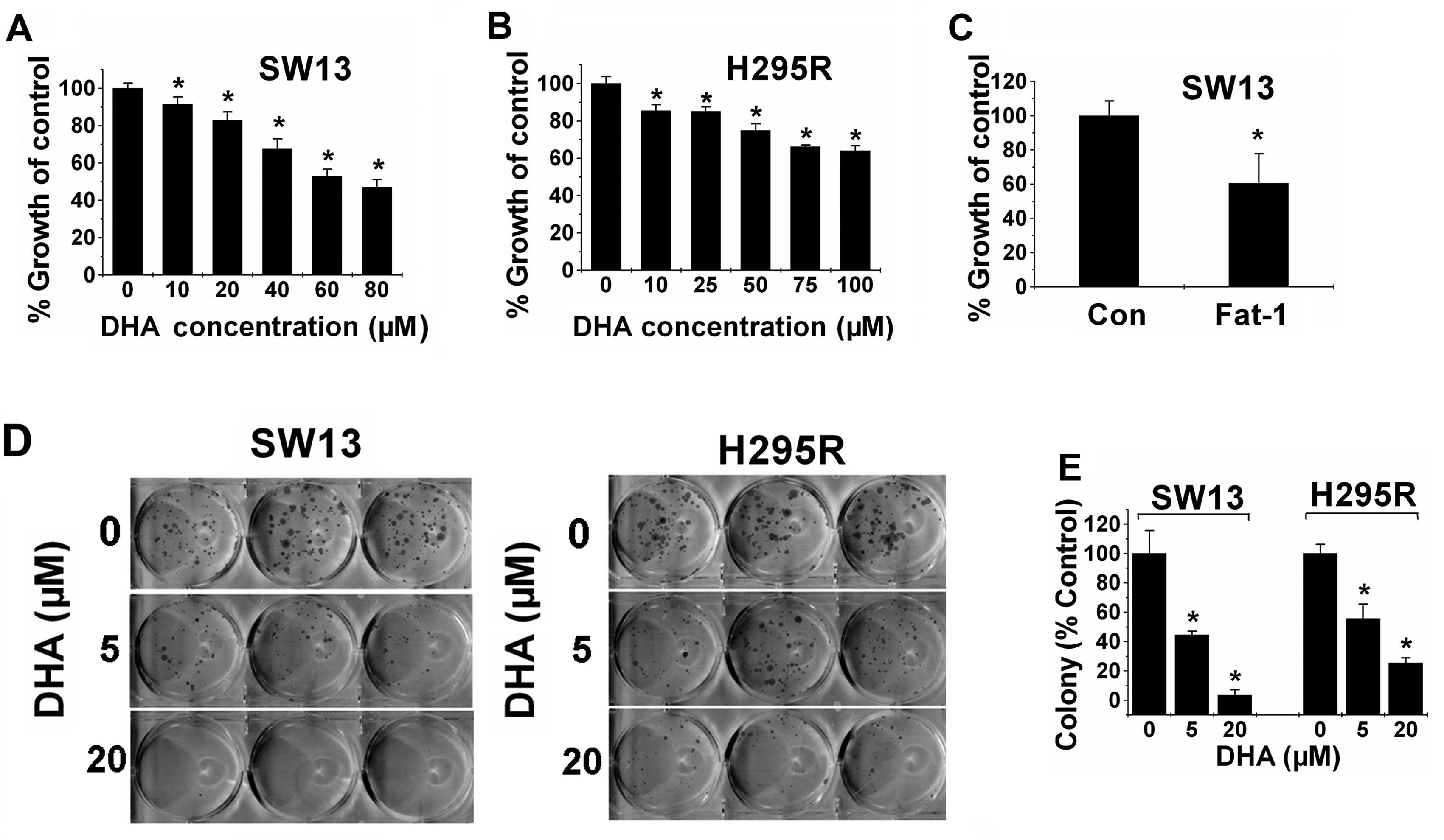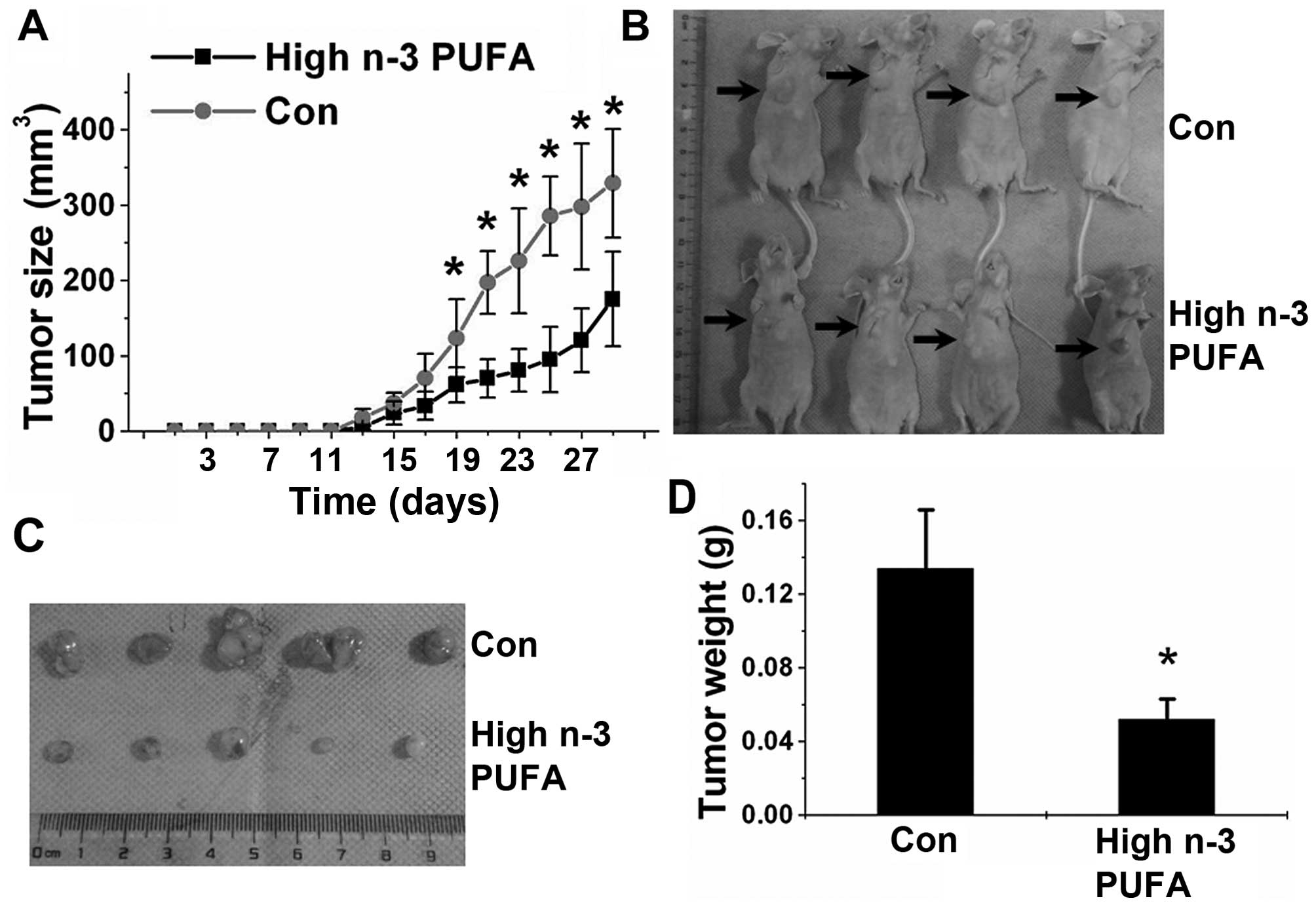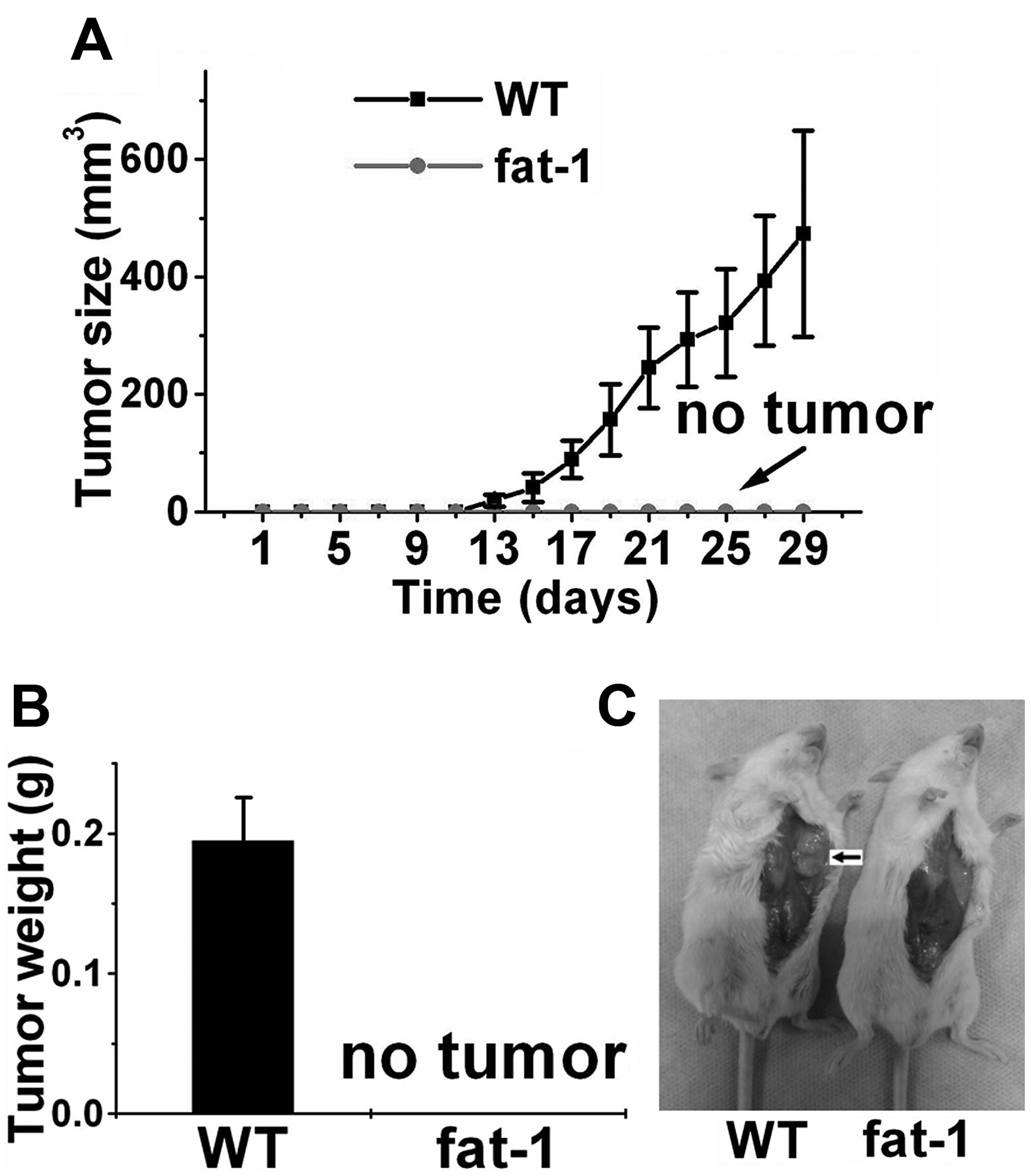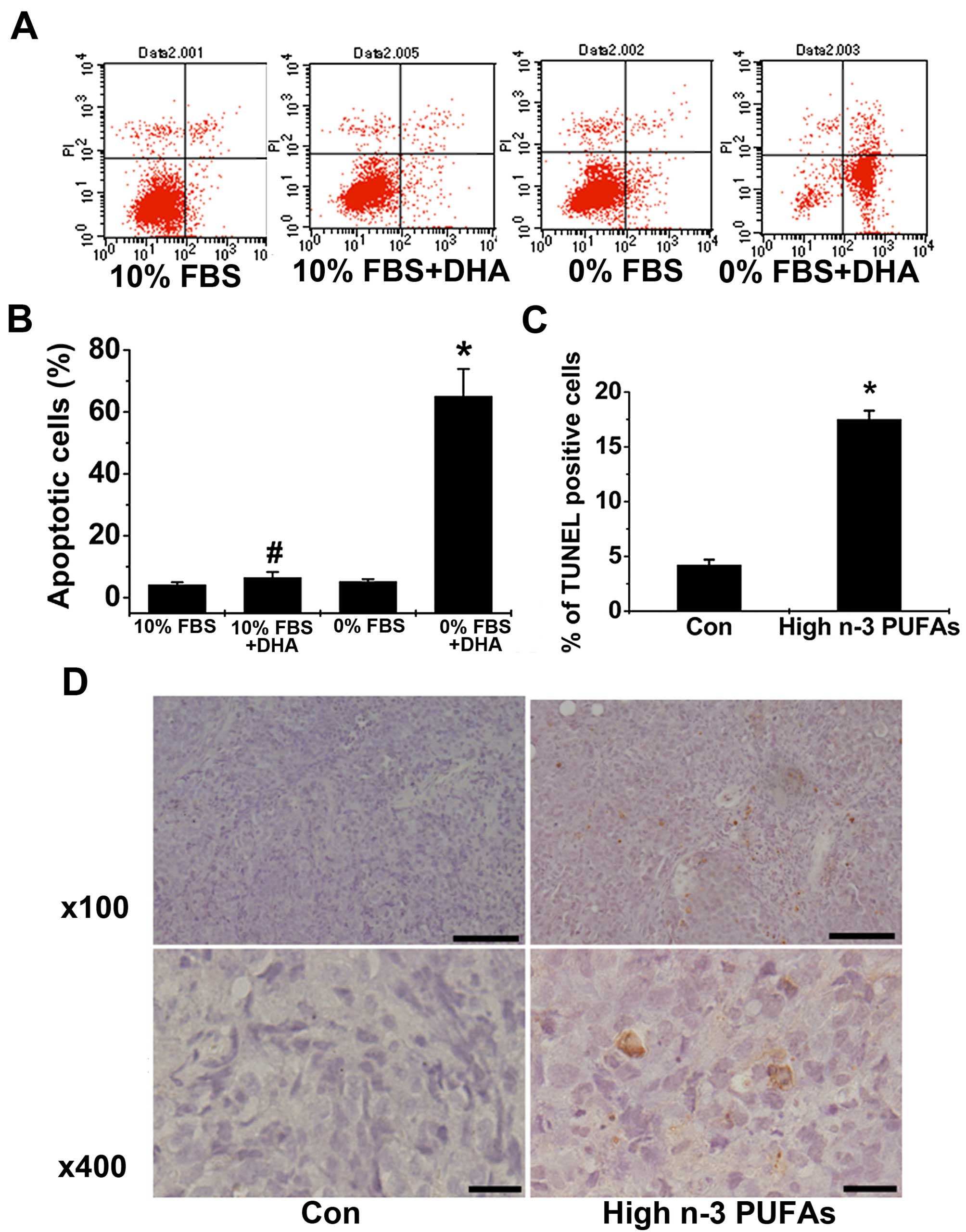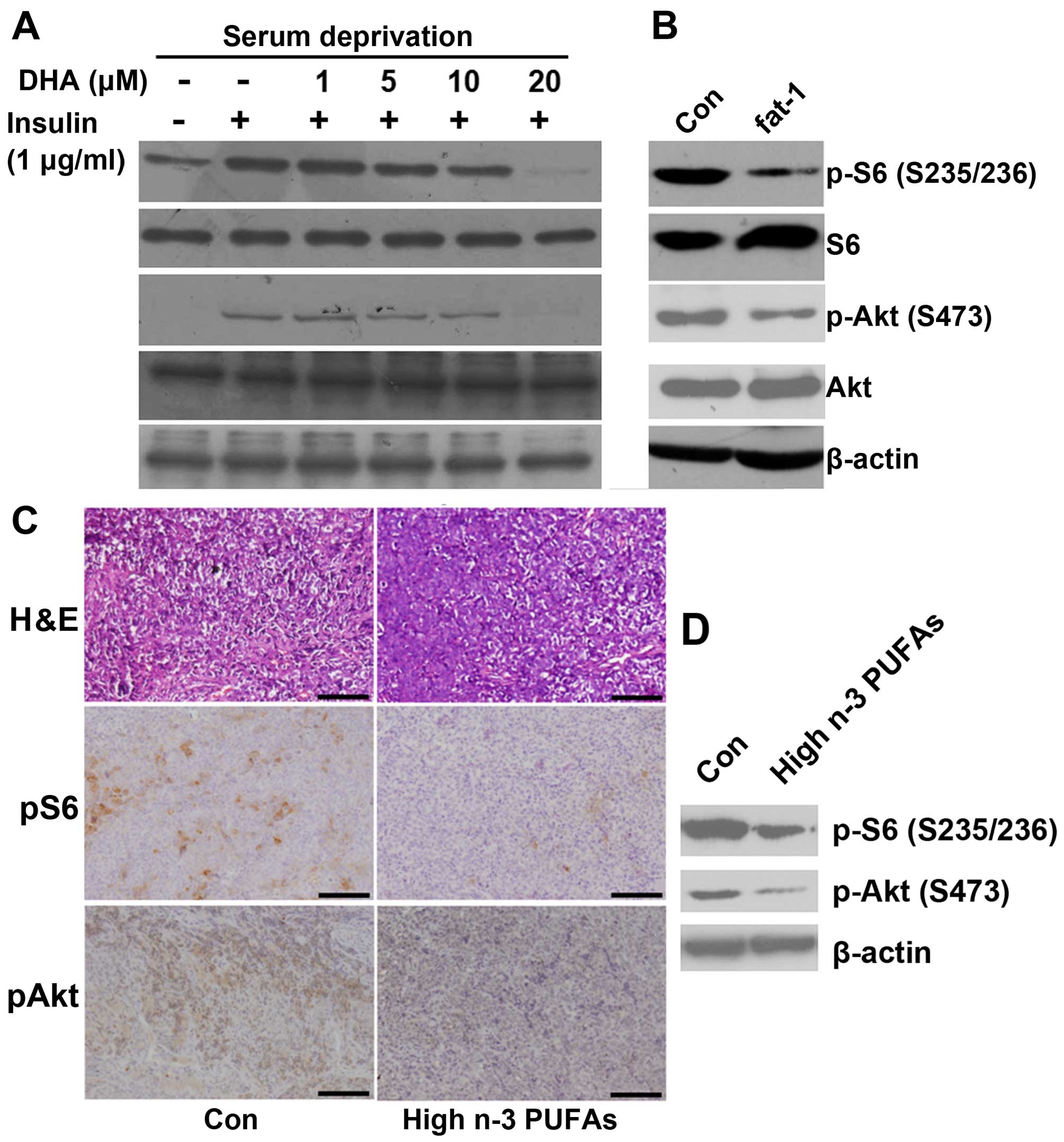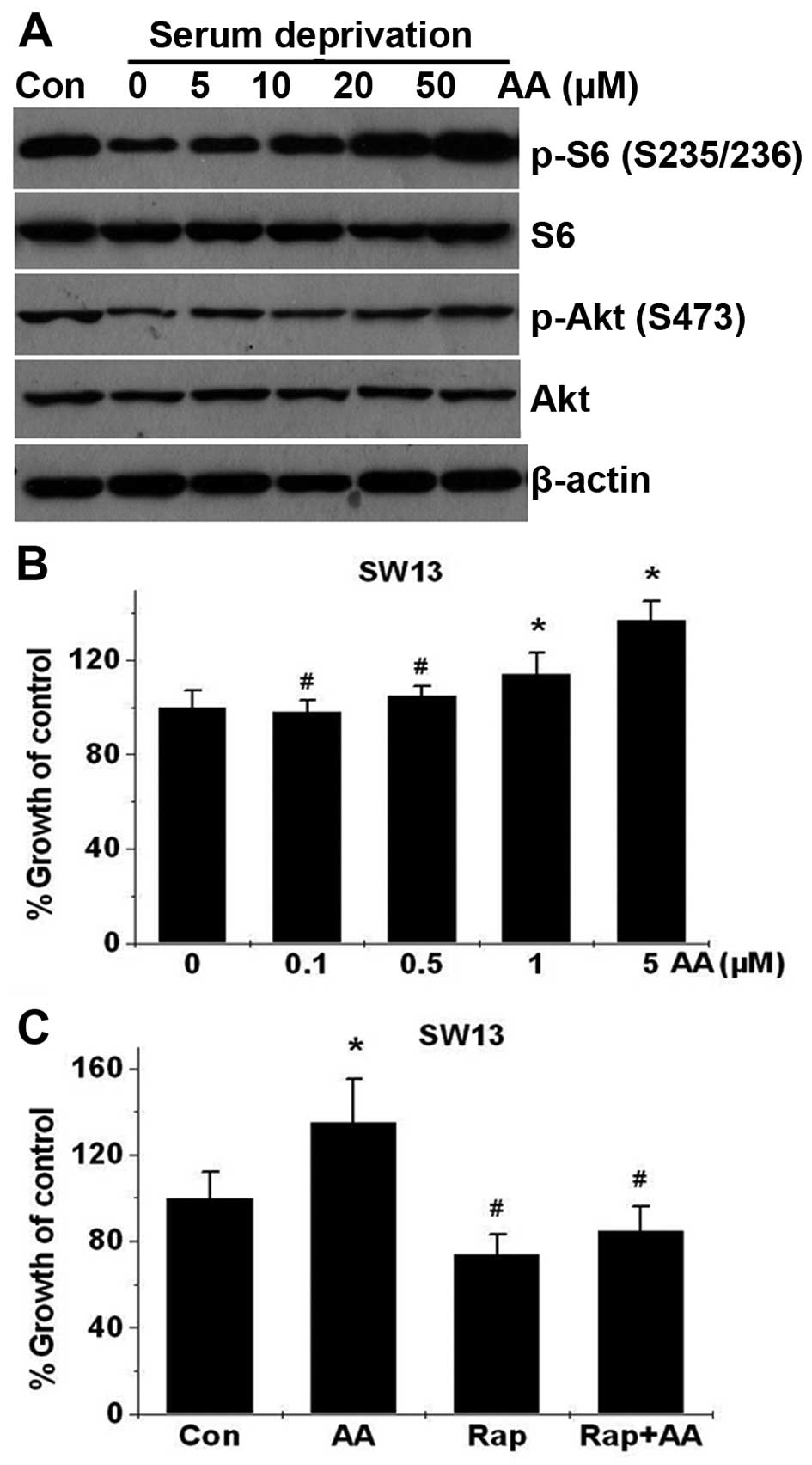|
1
|
Ronchi CL, Kroiss M, Sbiera S, Deutschbein
T and Fassnacht M: EJE prize 2014: Current and evolving treatment
options in adrenocortical carcinoma: Where do we stand and where do
we want to go? Eur J Endocrinol. 171:R1–R11. 2014. View Article : Google Scholar : PubMed/NCBI
|
|
2
|
Wang W, Hu W, Zhang X, Wang B, Bin C and
Huang H: Predictors of successful outcome after adrenalectomy for
primary aldosteronism. Int Surg. 97:104–111. 2012. View Article : Google Scholar : PubMed/NCBI
|
|
3
|
Erickson LA, Rivera M and Zhang J:
Adrenocortical carcinoma: Review and update. Adv Anat Pathol.
21:151–159. 2014. View Article : Google Scholar : PubMed/NCBI
|
|
4
|
Gerber M: Ω-3 fatty acids and cancers: A
systematic update review of epidemiological studies. Br J Nutr.
107(Suppl 2): S228–S239. 2012. View Article : Google Scholar
|
|
5
|
Update on marine omega-3 fatty acids:
Management of dyslipidemia and current omega-3 treatment options.
Atherosclerosis. 230:381–389. 2013. View Article : Google Scholar : PubMed/NCBI
|
|
6
|
Kang JX and Liu A: The role of the tissue
omega-6/omega-3 fatty acid ratio in regulating tumor angiogenesis.
Cancer Metastasis Rev. 32:201–210. 2013. View Article : Google Scholar
|
|
7
|
Zhang F and Chen Y, Long J, Dong L, Wang Y
and Chen Y: Effect of n-3 and n-6 polyunsaturated fatty acids on
lipid metabolic genes and estrogen receptor expression in MCF-7
breast cancer cells. Clin Lab. 61:397–403. 2015.PubMed/NCBI
|
|
8
|
de Roos B and Romagnolo DF: Proteomic
approaches to predict bioavailability of fatty acids and their
influence on cancer and chronic disease prevention. J Nutr.
142:1370S–1376S. 2012. View Article : Google Scholar : PubMed/NCBI
|
|
9
|
Abel S, Riedel S and Gelderblom WC:
Dietary PUFA and cancer. Proc Nutr Soc. 73:361–367. 2014.
View Article : Google Scholar : PubMed/NCBI
|
|
10
|
Larrieu T, Hilal ML, Fourrier C, De
Smedt-Peyrusse V, Sans N, Capuron L and Layé S: Nutritional omega-3
modulates neuronal morphology in the prefrontal cortex along with
depression-related behaviour through corticosterone secretion.
Transl Psychiatry. 4:e4372014. View Article : Google Scholar : PubMed/NCBI
|
|
11
|
Gomes A, Correia G, Coelho M, Araújo JR,
Pinho MJ, Teixeira AL, Medeiros R and Ribeiro L: Dietary
unsaturated fatty acids differently affect catecholamine handling
by adrenal chromaffin cells. J Nutr Biochem. 26:563–570. 2015.
View Article : Google Scholar : PubMed/NCBI
|
|
12
|
Foster KG and Fingar DC: Mammalian target
of rapamycin (mTOR): Conducting the cellular signaling symphony. J
Biol Chem. 285:14071–14077. 2010. View Article : Google Scholar : PubMed/NCBI
|
|
13
|
Sengupta S, Peterson TR and Sabatini DM:
Regulation of the mTOR complex 1 pathway by nutrients, growth
factors, and stress. Mol Cell. 40:310–322. 2010. View Article : Google Scholar : PubMed/NCBI
|
|
14
|
Dazert E and Hall MN: mTOR signaling in
disease. Curr Opin Cell Biol. 23:744–755. 2011. View Article : Google Scholar : PubMed/NCBI
|
|
15
|
Xu K, Liu P and Wei W: mTOR signaling in
tumorigenesis. Biochim Biophys Acta. 1846:638–654. 2014.PubMed/NCBI
|
|
16
|
Efeyan A and Sabatini DM: mTOR and cancer:
Many loops in one pathway. Curr Opin Cell Biol. 22:169–176. 2010.
View Article : Google Scholar :
|
|
17
|
Kang JX: From fat to fat-1: a tale of
omega-3 fatty acids. J Membr Biol. 206:165–172. 2005. View Article : Google Scholar
|
|
18
|
White PJ, Arita M, Taguchi R, Kang JX and
Marette A: Transgenic restoration of long-chain n-3 fatty acids in
insulin target tissues improves resolution capacity and alleviates
obesity-linked inflammation and insulin resistance in high-fat-fed
mice. Diabetes. 59:3066–3073. 2010. View Article : Google Scholar : PubMed/NCBI
|
|
19
|
Liu J, Li M, Song B, Jia C, Zhang L, Bai X
and Hu W: Metformin inhibits renal cell carcinoma in vitro and in
vivo xenograft. Urol Oncol. 31:264–270. 2013. View Article : Google Scholar
|
|
20
|
Li M, Zhao L, Liu J, Liu A, Jia C, Ma D,
Jiang Y and Bai X: Multi-mechanisms are involved in reactive oxygen
species regulation of mTORC1 signaling. Cell Signal. 22:1469–1476.
2010. View Article : Google Scholar : PubMed/NCBI
|
|
21
|
Chen Z, Zhang Y, Jia C, Wang Y, Lai P,
Zhou X, Wang Y, Song Q, Lin J, Ren Z, et al: mTORC1/2 targeted by
n-3 polyunsaturated fatty acids in the prevention of mammary
tumorigenesis and tumor progression. Oncogene. 33:4548–4557. 2014.
View Article : Google Scholar
|
|
22
|
Zheng H, Tang H, Liu M, He M, Lai P, Dong
H, Lin J, Jia C, Zhong M, Dai Y, et al: Inhibition of endometrial
cancer by n-3 polyunsaturated fatty acids in preclinical models.
Cancer Prev Res. 7:824–834. 2014. View Article : Google Scholar
|
|
23
|
Kiyabu GY, Inoue M, Saito E, Abe SK,
Sawada N, Ishihara J, Iwasaki M, Yamaji T, Shimazu T, Sasazuki S,
et al JPHC Study Group: Fish, n-3 polyunsaturated fatty acids and
n-6 polyunsaturated fatty acids intake and breast cancer risk: The
Japan Public Health Center-based prospective study. Int J Cancer.
137:2915–2926. 2015. View Article : Google Scholar : PubMed/NCBI
|
|
24
|
Thomasz L, Oglio R, Rossich L, Villamar S,
Perona M, Salvarredi L, Dagrosa A, Pisarev MA and Juvenal GJ: 6
Iodo-δ-lactone: A derivative of arachidonic acid with antitumor
effects in HT-29 colon cancer cells. Prostaglandins Leukot Essent
Fatty Acids. 88:273–280. 2013. View Article : Google Scholar : PubMed/NCBI
|
|
25
|
Wen ZH, Su YC, Lai PL, Zhang Y, Xu YF,
Zhao A, Yao GY, Jia CH, Lin J, Xu S, et al: Critical role of
arachidonic acid-activated mTOR signaling in breast carcinogenesis
and angiogenesis. Oncogene. 32:160–170. 2013. View Article : Google Scholar
|
|
26
|
Fraenkel M, Gueorguiev M, Barak D, Salmon
A, Grossman AB and Gross DJ: Everolimus therapy for progressive
adrenocortical cancer. Endocrine. 44:187–192. 2013. View Article : Google Scholar : PubMed/NCBI
|
|
27
|
Zhou HY and Huang SL: Current development
of the second generation of mTOR inhibitors as anticancer agents.
Chin J Cancer. 31:8–18. 2012.
|
|
28
|
Hsu JL, Liu SP, Lee CC, Hsu LC, Ho YF,
Huang HS and Guh JH: A unique amidoanthraquinone derivative
displays antiproliferative activity against human
hormone-refractory metastatic prostate cancers through activation
of LKB1-AMPK-mTOR signaling pathway. Naunyn Schmiedebergs Arch
Pharmacol. 387:979–990. 2014. View Article : Google Scholar : PubMed/NCBI
|
|
29
|
Pande M, Bondy ML, Do KA, Sahin AA, Ying
J, Mills GB, Thompson PA and Brewster AM: Association between
germline single nucleotide polymorphisms in the PI3K-AKT-mTOR
pathway, obesity, and breast cancer disease-free survival. Breast
Cancer Res Treat. 147:381–387. 2014. View Article : Google Scholar : PubMed/NCBI
|
|
30
|
Chen Z, Dong H, Jia C, Song Q, Chen J,
Zhang Y, Lai P, Fan X, Zhou X, Liu M, et al: Activation of mTORC1
in collecting ducts causes hyperkalemia. J Am Soc Nephrol.
25:534–545. 2014. View Article : Google Scholar :
|















